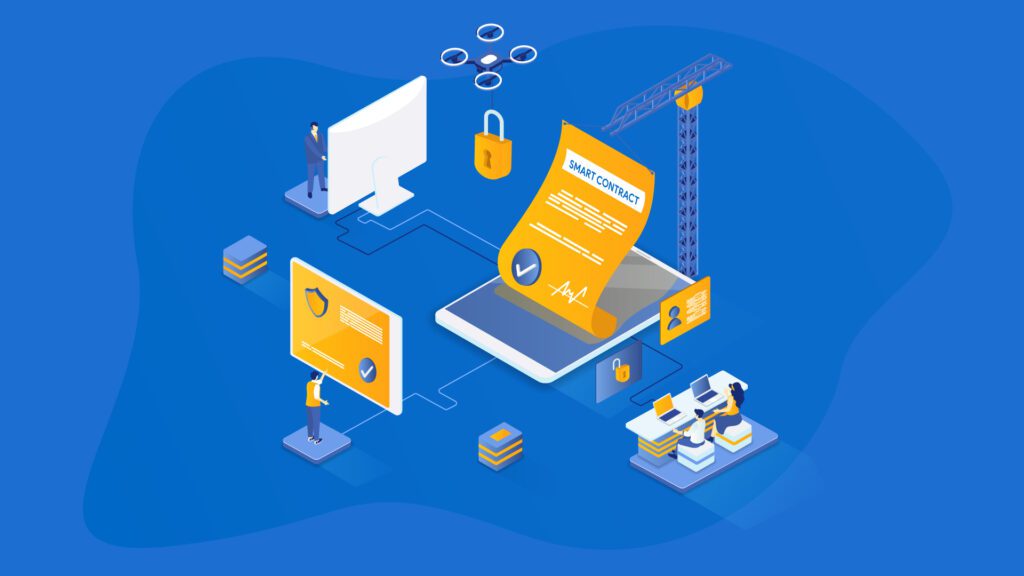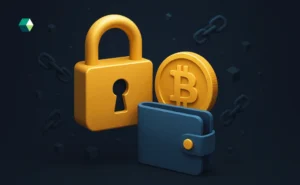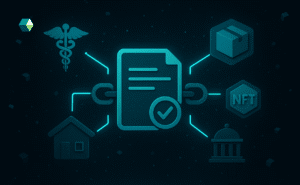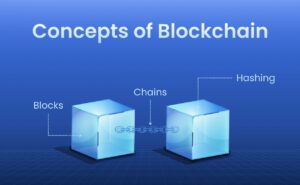
Blockchain technology is reshaping our digital landscape and the central part of that change is the smart contract. Smart contracts have become the foundation of innovation in Web3, implementing automating every transaction you can think of in decentralized finance (DeFi) and managing ownership for NFTs. In 2025, smart contracts are playing an even bigger role across enterprises, startups, and governments who are looking for blockchain solutions they can trust.
So what is driving this growth? Let’s examine the key trends in smart contract innovation 2025 to see how businesses and developers can prepare for the future.
What are Smart Contracts?
Before we discuss the trends, we want to clarify what smart contracts actually are. A smart contract is a self-executing program that is stored on a blockchain. Smart contracts possess pre-installed rules and automatically initiate when certain conditions are met. Smart contracts make it possible to automate agreements with code, and do not require a middleman like a bank or legal body as a traditional contract does.
For example:
- A DeFi protocol uses smart contracts to lend and borrow funds without banks.
- An NFT marketplace utilizes contracts to instant transfers of ownership.
- A supply chain company utilizes a blockchain based contract to track goods in real-time.
- The amount of smart contract development companies in India and around the world is growing, proving how important this technology is to businesses trying to streamline their use of resources.
1. AI-Aided Emerging Technologies Smart Contracts
In 2025, one of the largest changes is the awning of the artificial intelligent assistant with smart contract writing. AI is able to assist both engineers who have been developing smart contracts for several years, and new developers by completing redundant tasks, generating secure snippets, and recognizing issues before deploying.
AI-based code has the power of natural language-based instructions to Solidity or Rust code.
AIchain values estimate smart contracts development and audits will recognize reentrancy attacks, better recognize logic faults of contracts, and warn for gas not being deployed .
In the next wave of start-ups / firms, the ability to jump in and hire a smart contract development company accelerating crypto-enabled services with AI-built Smart contracts will be possible.
2. Cross-Chain and Interoperable Contracts
When smart contracts came about, they were usually limited to one blockchain, typically Ethereum. Businesses want to get away from tying themselves to one network’s fees and scalability.
- Contracts can now pull from or interact across Ethereum, Polygon, Solana, and EOS.
- Associative smart contract development companies focus on building systems that execute over multiple chains.
- Interoperability will allow for more expansive use for DeFi applications or NFT marketplaces.
This trend provides users with flexibility and businesses will gain in ease of scalability. So it is a major focal point for the best smart contract development company portfolios.
3. Upgradable Smart Contracts
Ancient contracts were built on the theory of irreversibility – it cannot be changed after it’s been deployed . While this grows confidence, it is also vulnerable – any bug will be forever within the contract.
- These days, upgradable smart contracts are the new standard.
- Proxy patterns can help developers fix bugs and add features to their smart contracts..
- A custom NFT smart contract development company can make collections with dynamic royalties or dynamic traits.
Enterprises appreciate the flexibility because it represents real-world needs and the benefits of blockchain.
4. Better Security with Formal Verification Prioritization
Security concerns persist in smart contract development. While hacks have cost billions in the past, the industry will devote more attention to formal verification in 2025.
Mathematical proofs guarantee that contracts behave precisely as intended.
- Smart contract audit and development processes involve a myriad of automated checks and third-party verification.
- Organizations partner with established smart contract development firms in India that have audit logs.
- This emphasis on security not only fosters trust but enhances enterprise-grade adoption of blockchain.
5. Account Abstraction & Smart Contract Wallets
Account abstraction is one of the most significant innovations since it allows non-technical users to interact with blockchains more easily.
- Users never will need to stress about losing private keys.
- Some smart contract wallet benefits are social recovery, fee sponsorship, and permissions.
- For onboarding, this development feels like a revolution to non-blockchain users who can freely interact with dApps.
Many of the leading smart contract development companies are now building wallet innovations into their end-to-end solutions
6. Tokenization of Real-World Assets
Tokenization of real-world assets (RWA) is among the most popular blockchain applications predicted for 2025. Smart contracts allow for ownership to be managed, and dividend or rent distribution to be automated.
- Real estate, bonds, and intellectual property are being tokenized.
- A custom NFT smart contract development company can help your business take care of secure and compliant asset tokenization.
This evolution helps bridge the gap between traditional finance and blockchain, and ensures that mainstream approach tries it in production any day now.
7. NextGen DeFi Contracts
DeFi remains one of the most common use cases for smart contracts. However, in 2025 there will be what we call DeFi 2.0.
- With a range of new financial products such as programmable derivatives and insurance contracts, DeFi is becoming a crowded place.
- EOS smart contract development is also becoming a popular choice for DeFi projects.
- Developers can pay less and get faster transactions than on Ethereum.
- Many startups no longer bother with hiring their own developers or trying to find developers available as freelancers. They’re all turning to companies specializing in DeFi automation and smart contract development.
With the way DeFi wallets and innovative contracts are meeting in the middle, decentralized finance is slowly getting now Christmas available to the whole world.
8. Decrease in Smart Contract Development Cost
The price of building smart contracts is decreasing with automation and modular frameworks.
Open-source libraries also allow developers to reuse trusted components.
- AI and testing tools also dramatically reduce debugging time.
- Offshore teams like the smart contract development companies in India will not only guarantee high quality, but will also have a very low price.
These changes make blockchain development easily accessible to startups, not just large corporations.
9. Education and Training in Smart Contracts Development
With the growing demand for developers, education is happening worldwide.
Courses in smart contracts development are available online and at universities.
- Typically, beginners will start with a smart contracts development tutorial before working on real projects.
- For those interested in smart contract development, the time it takes to master smart contracts development tools like Remix, Hardhat, and Truffle is more important than ever.
Education is creating this wave of smart contracts developer industry expansion in a less than two year span!
10. Industry Specific Smart Contract Adoption
Lastly, we will see the application of blockchain to industries in 2025.
Smart contracts in healthcare will be used to handle secure patient data.
- Gaming and Metaverse projects are reliant on NFT smart contracts to handle in-game assets.
- Smart contracts will be used in the supply chain to verify the authenticity of products, to track and to trace.
Legal tech will be able to combine traditional agreements with blockchain smart contracts to enforceable agreements.
Future Expectations
Innovations of 2025 highlight the fact that smart contracts, once just a concept, people are developing their ability to turn these contracts into real digital assets. Whether it’s through AI-assisted development, cross-chain capabilities, or real-world tokenization developments, smart contracts are changing the way our digital economy works.
For businesses, working with an organization provides the best smart contract development services, in order to ensure their projects are built securely and at the right smart contract development cost. For developers, to become a smart contract developer the fastest way to do this career transition, it would mean completing, “smart contracts developer tutorial,” taking a smart contract development course, and using the various modern smart contracts development tools you would not see from even 4 years ago.
Future of Blockchain Scalable Smart Contracts for Web3 DeFi and NFTs
Smart contracts are more than just cryptocurrency now; they form a core pillar of web3, DeFi, NFTs, and digital transformation. In 2025, the industry is looking towards security, scalability, cost-efficiency, and real-world integration. Whether you are a business or not, now is the prime time to employ a smart contract development company in India or globally to begin building scalable blockchain infrastructure and applications. If you are learning and want to jump on the booming opportunities, then take advantage of the upswing in smart contract development courses and tutorials!






